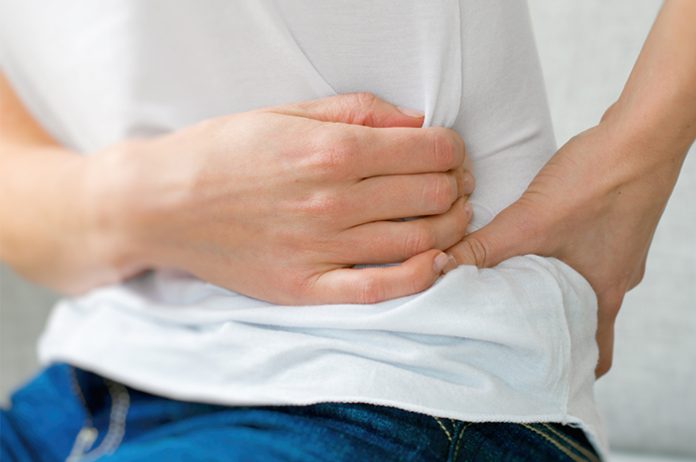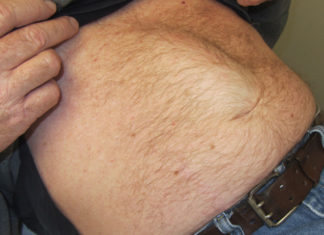Your kidneys are important to flush out toxins and waste. Keeping both kidneys healthy is important not just for survival but to maintain the body’s balance. All the intake fluids are discharged through the kidneys in urine after the body takes in the essential nutrients.
Screening out the waste is one of the primary functions of this organ, and when that gets hampered due to alcohol, then your body will have its waste piling up.
Colour changes in the urine are an important indicator of your kidneys’ condition. Blood in the urine or having pains while passing out urine are important indicators of the severity of your deteriorated kidney health.
An irregular lifestyle coupled with alcoholism is a way of risking your kidney health. With the easy availability of alcohol and more youngsters starting it early, kidney problems arise.
If you’re a regular drinker, are you having kidney pains after drinking? Do you have pains on your flank and back? Saying a “yes” in your mind is not enough. Knowing more about how your kidneys are affected by alcohol intake could probably save you from more serious health risks.
How are alcohol and kidney diseases related?
Kidneys regulate the outflow of fluids from the body. Having said that, alcohol contains diuretics that cause dehydration and improper functioning of the kidneys because of frequent urination.
Due to their reduced capacity, kidneys can’t filter properly, and your hydration balance goes kaput. As a result of alcoholism, liver disease causes the kidneys to overwork, increasing pressure on kidneys and causing more problems.
Some of the other effects of alcoholism on kidneys include Type 2 Diabetes, cancer and high blood pressure.
How to know if my kidneys are deeply affected?
Pain on your back for several days or on your sides are usually the first symptoms. To be more specific, pain on both sides of your spine is one of the most confirmed symptoms of kidney disorders. You may also suffer between your ribs.
Kidneys hurt after drinking. Alcohol makes the areas around your kidneys sore. Unchecked alcoholism causes constant or sudden shooting pain that gets worse at night.
These pains may also be accompanied by vomiting, nausea, blood in your urine, loss of appetite, headaches, fever, chills and fatigue.
Distinguishing the different kinds of kidney pain
Dehydration
Alcohol intake causes dehydration because of its diuretic properties that make your body urinate more. This dehydration causes your kidneys to not function in their regular capacity and even leads to kidney stones.
Kidney stones
For all kidney-related problems, be it as an effect of alcohol or not, kidney stones are always the first suspect. They are formed due to dehydration caused by alcohol intake. And if you don’t stop or regulate alcohol intake even after being diagnosed with stones, there will be many kidney pain after drinking alcohol.
Doctors usually advise supervision and increased water intake during the initial stages. And when that stops working, surgery is the only way.
Hydronephrosis
In this condition, one or both of your kidneys might be swollen because of urine accumulation, which kidney stones can aggravate. The renal pelvis gets swollen and causes flank pain which can further increase due to alcohol intake.
Pelviureteric Junction Obstruction
PUJ obstruction, a congenital disability, can occur later in life and maybe cause kidney pains after drinking alcohol. This disorder obstructs the renal pelvis, and alcohol aggravates the condition.
Liver disease
Our human body is wired so that one malfunctioning organ sends its vibes across other organs. Having liver disease increases your kidney pains after drinking alcohol and hampers blood flow to the kidneys. Alcohol also affects the liver, and too much may lead to cancer.
Following nutritional diets and losing fat along with stopping alcohol intake are some of the measures to keep your liver in shape. In extreme cases, though, surgery is the only way.
Gastritis
Our sensitive stomach linings are easily affected by the slightest of anomalies, such as spicy food. Now imagine the damages you can cause by regular alcohol intake. Swollen stomach linings cause pain in the abdomen, and this type of stomach pain may be a sign of kidney damage.
Preventive measures for kidney pain after drinking
Controlling alcohol intake
Needless to say, reducing alcohol intake or even completely stopping it is your best bet. Alcohol is neither nutritious nor useful for the body. The pleasures come at a premium on your body and cause more harm than good.
If your day can’t begin without a drink, it’s suggested to limit the number of glasses you indulge in. If you exchange your hard drinks for softer ones and restrict the former to only special occasions, your situation improves.
Controlling diet
Since the liver and kidneys are associated with maintaining the digestion and excretion of your food, it’s very important to control what you eat. Diet control ensures a proper balance of nutrients and ensures that whatever you’re passing out of your body is easy to digest.
In case of kidney pains after drinking alcohol, your controlled diet will ensure that the kidneys are not under extra pressure. Cutting down on salt, caffeine, and sugar go a long way in streamlining your diet.
Visiting a therapist or AA
If you realize that alcohol has become an integral part of your life and your addiction is not helpful, don’t feel afraid to visit a therapist or Alcoholics Anonymous. Their scientific and therapeutic ways of handling your condition will have more impact than you trying to do it.
Staying hydrated
One of the main reasons alcohol has harmful effects on the kidney is its dehydrating effects due to its diuretics. The only way to counter dehydration is more intake of fluids.
Water is always the best solution, but try juices or other flavoured drinks if it gets boring. Alternative nutritious drinks can not only keep you hydrated but also replenish some of your lost nutrients.






